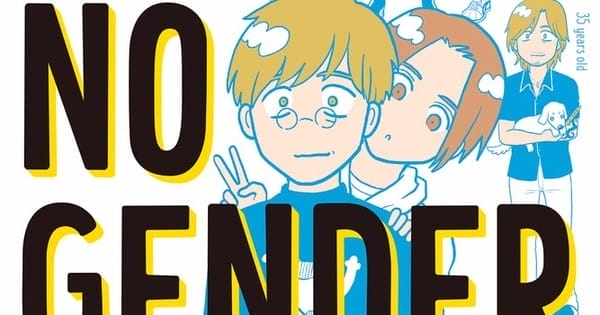
At 30, I Discovered I Had No Gender Manga Evaluate
We often don’t know a great deal about ourselves. At times, this can be due to our true ignorance of genetic information about our bodies, as was the case with designer Shō Arai, who at thirty years old found out he was intersex through chromosomal testing. However, there are always discoveries to be made and our lives can still be works in progress even when we have a firm grasp on who we are and aren’t attracted to. Arai’s first release in English Not his first autobiographical manga, At 30, I Realized I Had No Gender is a unique take on the theme of aging as a queer person and embracing the changes that come with it that we rarely see in translated.
The story takes place around Arai’s fiftieth birthday, despite the title. One of the subjects covered is age discrepancies between partners because his boyfriend is younger and appears even younger than he does. However, for a book that is so brief, it covers a lot of ground, including sex, facial hair, and the annoyance of language that is gendered. Although Arai mentions in passing in the text that he uses masculine pronouns after considering they/them, the majority of the language is in line with Japanese terminology, which differs from English in some respects regarding what is considered polite or correct. This is addressed in the opening note of the book. While there are a few instances in which knowing that small bit of background information is helpful, Arai generally conveys his point of view quite well, regardless of the terminology employed.
The book doesn’t have a mature rating, which I appreciate because it keeps educational or LGBTQIA+ books that deal with sex out of the hands of people who need them. However, there are several candid conversations about sex and some uncensored (but still nongraphic) pictures of male genitalia. Though they could surprise some readers if you’re not expecting a how-to manual for teaching a trans pal how to outsmart his aging lover so that they can enjoy sex together, I wouldn’t characterize them as gratuitous at all. Since this book is about middle age, it explores topics such as how different ages of partners might affect a person’s sexual life or simply how aging affects the bodies of all genders and what it means for those who are sexually active. The conversation is great, as is Arai’s response to a reader inquiry regarding the state of his boyfriend’s testicles. Seeing such civil and honest discussions about subjects that individuals find difficult to broach is more reassuring than instructive. (And it’s counterbalanced by Arai’s affection for the far more ridiculously displayed penis of his boyfriend.)
Many pages are devoted to the particular problems that people who identify as LGBT or gender nonconforming may have in Japan, avoiding the subject of marriage. (To find out why, read Why I Adopted My Husband.) For example, transgender or intersex people may not be allowed to use the hot spring that corresponds to their gender identity, which presents issues, or at the very least, doubts. In contrast, those who don’t identify with the rigid gender binary that is still widely accepted face challenges. Some of it is as simple as referring to your relationship – do you use gendered terminology like “oku-san” or “danna,” or do you stick with less committed terms like “boyfriend” or the neutral “partner”? Arai also responds to inquiries concerning growing facial hair—or at the very least, enhancing its appearance with makeup—and breast-binding. He also observes that prejudice toward nonbinary people might make it difficult to be honest with those around you. They’re all fascinating talks, even if it’s not a problem for you. Understanding what other people go through can only deepen our empathy.
Similar to many manga autobiographies, the primary attraction isn’t the artwork. Although Arai’s work is endearing and charming, and he has a funny way with improper chibi, the four-panel format occasionally hinders the plot’s flow, and there are moments when it drags. It’s also evident that this is the most recent in a line of autobiographical manga, which occasionally implies that a significant portion of Arai’s narrative is absent. The open, honest, and candid conversation that stays with you is At 30, I Realized I Had No Gender, so maybe this does well enough to invite the others over. Pick this up if you’re seeking for a book that merely talks about its creator’s experiences as a human being without holding back.


